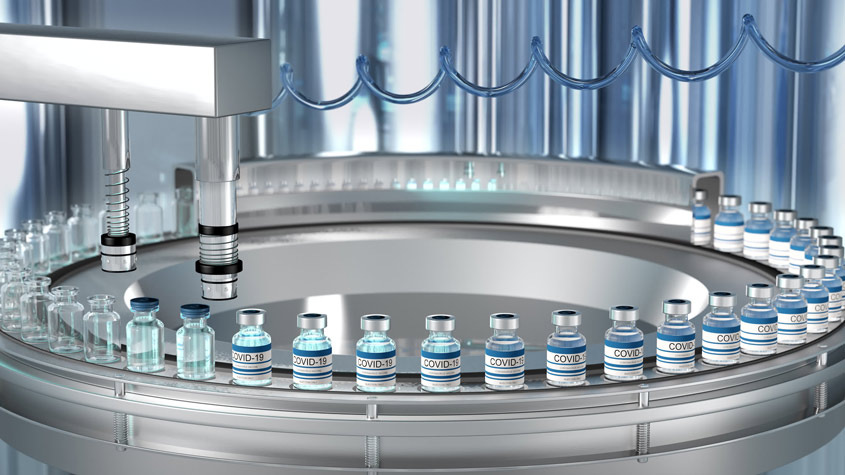By Asmau Ahmad
The National Agency for Food and Drug Administration and Control (NAFDAC) said it has obtained the World Health Organisation (WHO) approval to produce vaccines locally, with the attainment of 868 recommendations.
The Director-General of NAFDAC, Professor Moji Adeyeye, made this known at a press conference in Abuja, noting that the feat has made Nigeria the third African country and few globally to attain the status.
“With the attainment of 868 recommendations, we (NAFDAC) can manufacture our own vaccines,” she added.
She disclosed that the process of local vaccine production has started with the construction of a vaccine laboratory in Oshodi, Lagos.
Prof. Adeyeye revealed that the journey to attain the status started in January 2018, five weeks after she resumed office as the director-general, adding that the agency went through a lot of tasks before it could attain maturity level three.
According to her, she learnt about the development around 1am on Wednesday, and she immediately broadcast the news via e-mail to some relevant government personalities.
“The agency had earlier been told sometime in 2018, that it needed to meet up with 868 recommendations before it can get to maturity level three, and the agency immediately stepped-up work on the process.
“WHO Global benchmarking is all about comparing regulatory agencies that work to carry out tasks pertaining to the best health regulatory agencies in the world. It is not about comparing ourselves with ourselves but with the best.
“And they told us that we need to meet up with 868 recommendations before we can get to maturity level three, it sounded impossible but my directors stood by me all the way,” she said.
Prof. Adeyeye said a group of people in NAFDAC, called the Global Benchmarking team, have sacrificed a lot. “They are the ones that were marking whatever recommendations we have met.
“In June 2019, the WHO came to NAFDAC physically to start the benchmarking process and out of the 868 recommendations, we were able to make over 600, and we had 147 left up till June 2019. But those 147 that were left were the most difficult ones.
“We started working at it with retreat and training because it is all about training. One thing we also did was to make sure NAFDAC is built on a `quality management system’. That was what got us to the 147 recommendations left in 2019.
“We continued in that direction, but in July 2021, the WHO met with us virtually and we were able to reduce the 147 to 33. The 33 were the most difficult and our staff worked for endless hours. I thank them. May I also use this medium to thank the council for recommending regulations; they work tirelessly.”
Prof. Adeyeye said that with the 33 tasks left, the WHO returned in October 2021, by which time, the agency had been able to clear all the remaining recommendations and was waiting for it to be re-benchmarked.
The NAFDAC director-general, said that the WHO also came between February 21 and 25, 2022 to re-benchmark the agency, and the information was finally broken to the agency.
According to her, global benchmarking required about eight functions that must be performed to the satisfaction of the WHO, among which is licensing and inspection.
She noted that throughout the journey of attaining the present status, the Pharmacists Council of Nigeria (PCN) was behind the agency and stood in a prime position to ensure the licensing of pharmaceutical companies before they can start operations.



1 comment
My point of view is that if there is multiple production of vaccine , masses are not longer save, because there’s high probability of fake production of vaccine by individual. And to employ youth who are qualified for the task to reduce endless hours and more efficacy.